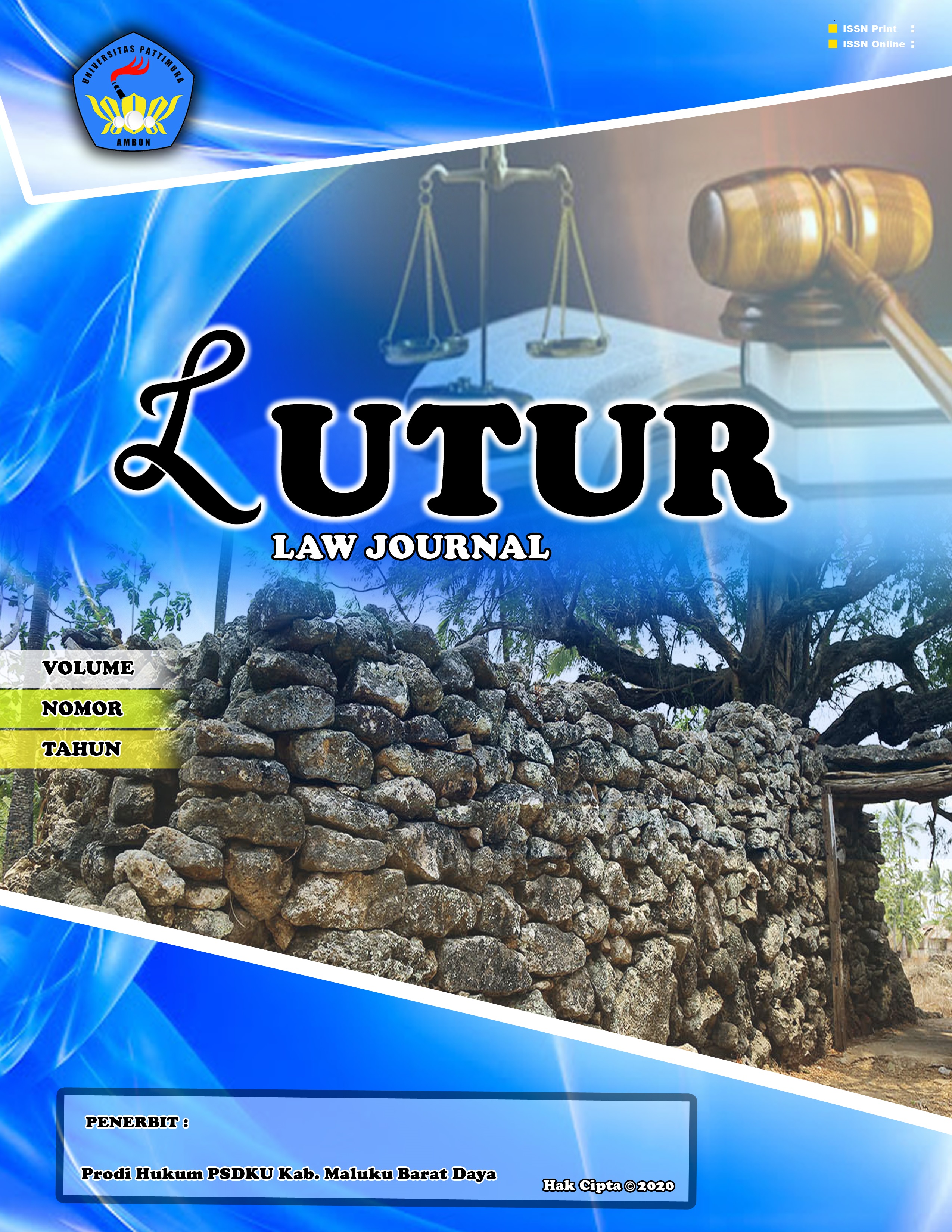Nilai-Nilai Dan Hukum Duan Lolat
Abstract
In accordance with the nature of nature, humans from birth until death live together with other humans. Or in other words, humans cannot live alone, separated from other human groups. Since time immemorial, humans have had a desire to gather with each other in a group, besides that, humans have had a desire to be in society. Aristotle stated that humans are zoon politicization, which means that humans as creatures basically always want to socialize and gather with fellow humans because humans are social creatures. Customary law contains a traditional nature, stems from the will of ancestors who are usually deified and custom is also considered to be based on the will of the gods. Customary law comes from customs. Customs are a collection of social rules that have existed for a long time, have become a tradition in society, and which are intended to regulate the order of that society. These rules are obeyed in a legal association. Not all customary rules are positive law. Because besides sanctioned customs, there are also non-sanctioned customs. The emergence of the Duan Lolat culture as the highest customary law (adatrecht) began with a form of marriage, which used to be understood that an ideal marriage was one that occurred within one's own circle, and it was forbidden to carry out marriages outside one's group. The social grouping system in what is called Duan Lolat does not construct standard social strata/classes like the caste system. Duan as the giver of the daughter, Lolat as the recipient of the daughter in a Tanimbar marriage, from which the marriage gives rise to their respective rights and obligations which should and should not be implemented from the time the marriage occurs up to a certain level of descent.
Downloads
References
Buku
Bernard L. Tanya, Yoan N. Simanutak, Markus Y. Hoge. Teori Hukum (Strategi Tertib Manusia Lintas Ruang dan Generasi). Kita. Surabaya, 2006.
C.S.T. Kansil. Pengantar Ilmu Hukum Indonesia. Rineka Cipta. Jakarta, 2010.
E. Sumaryono. Etika dan Hukum. Kanisius. Jakarta, 2002.
K. Ng. Soebakti Pesponoto. Asas-Asas dan Susunan Hukum Adat. Balai Pustaka. Jakarta, 2013.
Pastor. P. Drabbe.,M.Sc. Het Leven Van Den Tanembarees (Etnografidce Studie Over Tanembareesche Volk) - Etnografi Tanimbar. Leiden-Belanda, 1940.
R. Z. Titahelu. Aneka Masalah Masyarakat Hukum Adat dalam Pembangunan. Depublish. Yogyakarta, 2014.
Soerjono Soekanto, Pengantar Penelitian Hukum, UI Press, Jakarta, 1984.
Skripsi, Tesis, Distertasi, Online/World Wide Web dan Lain-Lain
http://www.forumbebas.com/thread-11519.html. Diunduh pada tanggal 7 Mei 2024K. Ng. Soebakti Pesponoto. Asas-Asas dan Susunan Hukum Adat. Balai Pustaka. Jakarta, 2013.
Copyright (c) 2024 Yeheskel Wessy, Lodwyk Wessy (Author)

This work is licensed under a Creative Commons Attribution-NonCommercial 4.0 International License.
Authors who publish their manuscripts in this Journal agree to the following conditions:
- The copyright in each article belongs to the author, as well as the right to patent.
- Authors are able to enter into separate, additional contractual arrangements for the non-exclusive distribution of the journal's published version of the work (e.g., post it to an institutional repository or publish it in a book), with an acknowledgment of its initial publication in this journal.
- Authors are permitted and encouraged to post their work online (e.g., in institutional repositories or on their website) prior to and during the submission process, as it can lead to productive exchanges, as well as earlier and greater citation of published work.
- Authors have the right to self-archiving of the article (Author Self-Archiving Policy)














